This article, originally published on Second Wave Michigan, is part of Early Education Matters, a series about how Michigan parents, childcare providers and early childhood educators are working together to implement Pre-K for All. It is made possible with funding from the W.K. Kellogg Foundation. Photos by Doug Coombe.
A child’s experience of child care and early education can potentially make or break their academic development. In Detroit, Hope Starts Here is an organization championing the importance of early childhood care and education. The work it does through its Imperative 2: Detroit Champions for HOPE (DCH) focuses on advocacy, community leadership, and parent engagement. DCH works to better the lives of Detroit’s children by empowering parents and caregivers to be their child’s first champions in learning and development because early childhood experiences begin at home.
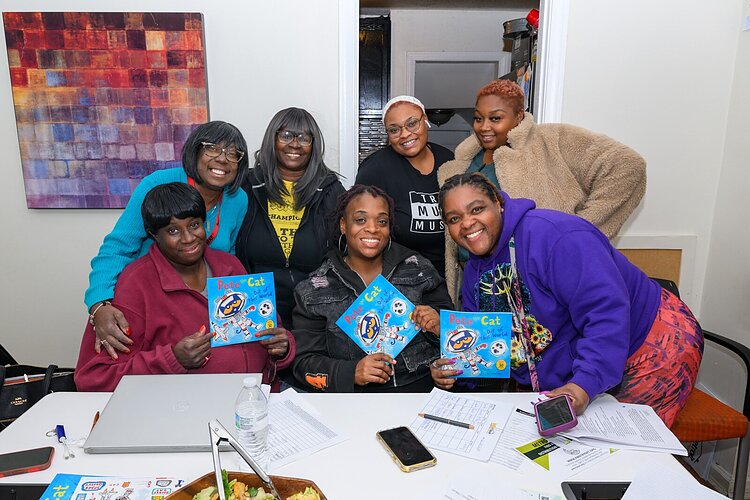
Ivy Jones, Jasmine Mahone, Sherie Sharpe, Janye Ellis, and Dorothy Brooks taking part in Detroit Champions for Hope.
“We want parents to know they don’t have to suffer in silence,” says Symone Wilkes, DCH. “They have a whole team out here that’s going to work for them 100 percent.”
The emphasis on the whole family is very important when considering early childhood education. Birth through age 8 is one of the most important periods in a child’s development. With about half of that time largely spent in the care of a parent, a lot of that development falls on the parent to facilitate.
“The babies that we’re raising up are going to be the next ones to be teaching long after we’re no longer here,” says Makese Taylor, DCH community outreach specialist. “It is very important that we’re doing this work and we’re showing love.”
Even something as simple as reading to a child makes all the difference for them later in life. Research has shown that reading to a child, even before they can speak, helps create an important basis for the neurological pathways that will lead to effective literacy and language development.
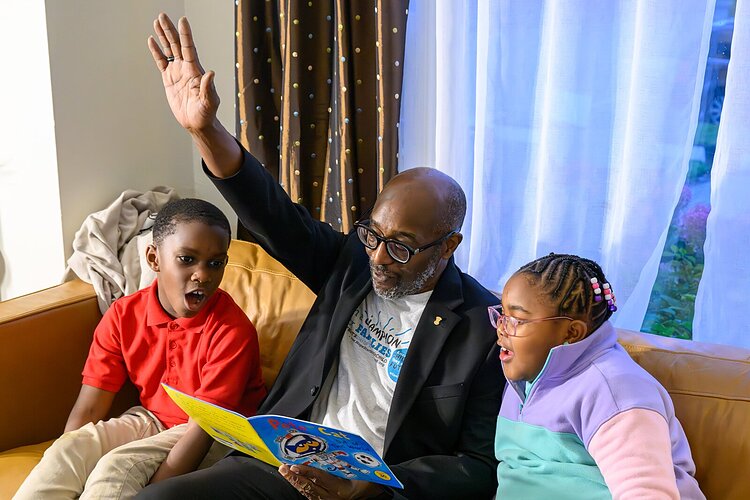
James Ribbron reads to Dwayne Sharpe and Elizabeth Brooks.
“6-A-Days” help parents set kids up for success
Seeing parents and caregivers as a child’s first teacher, DCH directly involves parents in that work. For example, its 6-A-Days program encourages parents and caregivers to do six easy things at home to support their children’s development: encouragement, hugs, talking to, singing with, reading to, and playing with children.
“This program is something that a parent can do with their children every day to build character. I cannot say enough about these 6-A-Days,” Taylor says. “My grandchild, he’s reading at two because he participates in this program. We teach the parents about this so their children can feel success when they go to school.”
DCH works to meet Detroit’s parents, one on one, in their own communities. The goal is to support parents in creating the best environments for their children. DCH also connects parents and children with early childhood education opportunities.
“While we’re with these families, we’re constantly facilitating one-on-ones,” Taylor says. “This approach is very important because a lot of people have literacy issues that they would rather not talk about. We use one-on-ones to make parents feel more comfortable. Though we focus on the needs of the child, we also spend time talking about the moms’ needs. Children cannot grow without the mamas growing.”
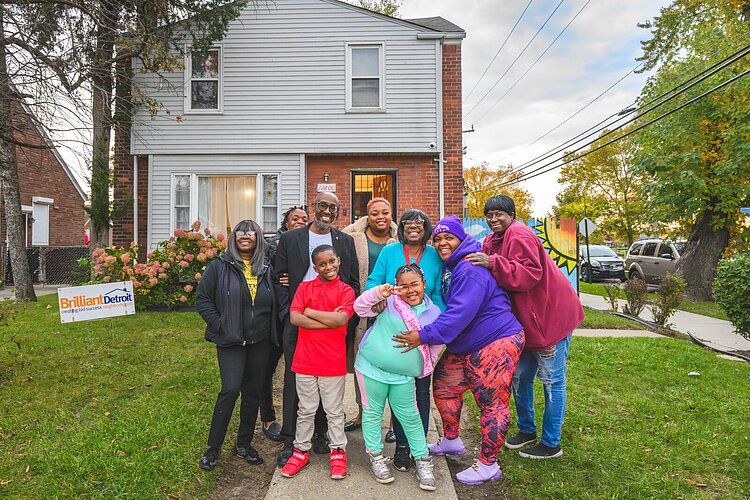
Detroit Champions for Hope staff, parents, and kids pose in front of Brilliant Detroit’s Osborn House.
More than moms
Understanding that mothers are not always the child’s main caregiver, DCH also invites all caregivers to take part, parents, grandparents, or others providing primary care for a child.
“We have another aspect of Detroit Champions for HOPE where we work with fathers,” says James Ribbron, DCH executive director. “We also have our FARM project. FARM is an organization that works with men coming out of the prison system that are trying to get back on their feet that we work directly with. They’ve been participating in the 6-A-Days.”
DCH expands the focus on parent engagement to hone community leadership. A thriving household and thriving community lead to thriving children. DCH is connected to many community leaders who work together to ensure children are provided with the best early childhood care and education. DCH also partners with approximately 10 community organizations to engage parents and caregivers in spaces where they already feel comfortable. And DCH networks with 25 to 30 other organizations to engage community. For example, DCH facilitates 6-A-Days workshops in partnership with Brilliant Detroit.
“To engage the community, we work with our partners, go to town hall meetings, and sit in other spaces and meetings where we come up with our next goal as far as helping our community,” Wilkes says. “We meet the parents in the community where they are. For example, if they are at the local library we go to the library to meet with them.”
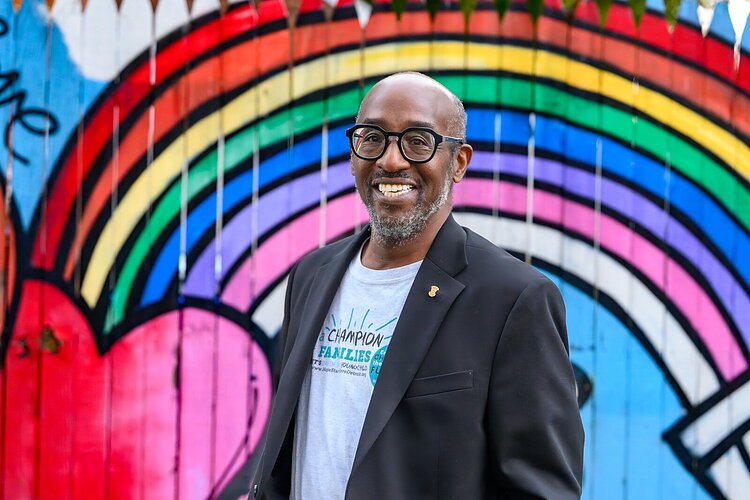
James Ribbron, executive director, Champions for HOPE.
The whole child
DCH also focuses on advocacy work, organizing people in Detroit to get involved in government and make sure lawmakers know what they think is best for their children.
“Getting parents and caregivers ready to go to Lansing during the budget time to advocate on childcare issues is a big part of our advocacy work,” says Ribbron. “We also are involved in voter registration for each election. We’re gearing up now for the 2024 election.”
In addition to focusing on voting rights and voter education, its advocacy work supports legislation that best benefits the whole child, ensures family success, and improves health and the health care families have access to. DCH believes that healthy families create happy children. Recent work includes addressing Medicaid and food assistance program challenges that many families currently face.
“Upper respiratory infections are really prevalent at this time of year,” says Taylor. “Our children are not able to be seen because parents don’t know that they’re cut off from Medicaid until they take the kids to the doctor.”
Ribbron notes that DCH is determined to continue its focus on advocacy, parent engagement, and community leadership for the long haul.
“We’re not going anywhere. The Kellogg and Kresge foundations are committed to us through 2027,” Ribbron says. “We’re going to build up our ability to bring more people into our districts, and we want to work more closely with our collaborators to ensure that we meet the goal of making Detroit a place where children and families thrive.”




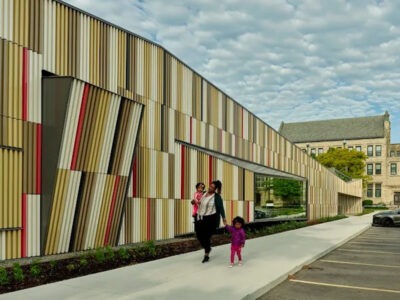
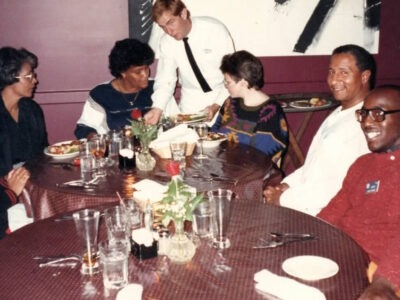


Comments